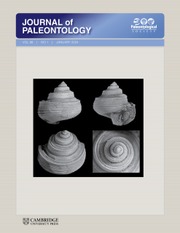From moon fish to lungfish (look them up!)—in terms of vertebrate diversity, the phylogenetic distance between these twigs on life's tree is vast and deep. This span of interest has been a signature of Matt Friedman's work from the very outset. Primed in ray-finned ichthyology by G. David Johnson (Smithsonian) and lobe-finned ancestry by Jenny Clack (Cambridge), he arrived at Chicago bursting with ideas, opinions, projects, and papers. Matt's intellectual curiosity and sheer drive were infectious; targeting teleosts and the paleobiology of the end-Cretaceous taxonomic turnover for his dissertation, in parallel he challenged and restructured hypotheses of deep sarcopterygian phylogeny. Matt's accomplishments extend from empirical contributions forming the basis of higher-level paleobiological analyses (describing 11 new genera ranging from Paleozoic to Cenozoic) through to quantitative analyses of evolutionary rates, modes, and phylogenetic calibrations of key evolutionary events. Unusually for a vertebrate paleontologist, his work often involves collaborations with large-scale molecular investigations of interrelationships of modern species. Crucially, this work is united by a central motivation: the use of fossils to illuminate the pattern and process of biodiversity in over half of the vertebrate tree of life.
Indeed, Matt's broad interests in a range of paleobiological and macroevolutionary questions over the Phanerozoic history of fishes have resulted in at least one paper each in Nature or Science for the Paleozoic, Mesozoic, Cenozoic, and Recent. For example, Matt erupted onto the scene during his PhD by shedding new light on the puzzle of flatfish asymmetry (both eyes on one side of the face), a problem that flummoxed Darwin and became a touchstone of early evolutionary debates. Matt recognized fossil relatives with intermediate stages in eye migration and asymmetry (published in Nature), thereby revealing this transition as gradual rather than an evolutionary leap, no longer needing the intercession of a ‘hopeful monster.’ Another paper, published in Science, involved giant, suspension-feeding members of the teleost clade such as the iconic Leedsichthys. Matt demonstrated that these remarkable fishes were the geologically long-lived ecological equivalents of baleen whales, filling a major gap in marine ecosystems of the Mesozoic. Importantly, he further developed this work to show similar stepwise sequences of structural adaptations in both groups, arriving at a general model for the evolution of large suspension-feeding vertebrates.
Although the Schuchert award is for paleontology, an important component of Matt's research involves the investigation of living fishes, and this synthesis has been instrumental in bridging the too-often-encountered gap between those who work on extinct groups and those who work on extant groups. His meticulous work and pioneering use of CT-scanning data to study fossil relatives of major teleost groups has provided important new insights into the evolution of these vast clades and provided a significant contribution to the resolution of the proverbial bush at the top of the teleost tree. In so doing, Matt's research led to recognition that marine fishes were strongly affected by the Cretaceous–Paleogene extinction event, with intense selectivity against groups with certain ecologies (PNAS) followed by substantial morphological diversification in spiny-rayed teleosts (such as perch-like fishes or, indeed, most fishes dominating today's reef communities) in the extinction aftermath (Proceedings of the Royal Society B). As noted, Matt's work here is truly comprehensive, combining large molecular data sets with fossil data and providing paleontologically informed phylogenomic frameworks for a wide range of living teleost groups.
Beyond these high-impact publications, and more besides (tackling early gnathostome morphology and paleoecology, as well as the evolutionary root of the ray-finned fishes—an obsession of at least one of the present authors), Matt has garnered numerous awards, including a Philip Leverhulme Prize (2012), the Hodson Award of the Palaeontological Association (2013), the André Dumont Medal of the Belgian Geological Society (2018), and the Robert Lynn Carroll Award of the Society of Vertebrate Paleontology (2022). In addition, Matt has been a primary supervisor of numerous graduate students and postdocs, serves in editorial roles for paleontological and biological journals (Journal of Vertebrate Paleontology, PLoS ONE, Evolution, Systematic Biology), and has taken on critical administrative responsibility as director of the University of Michigan Museum of Paleontology.
In summary, his contributions have been transformative—remove him from our community and there would be a very noticeable hole. Whether enthused or provoked by Matt's output, it deserves attention. His research has drawn neontologists to gain a far better appreciation of the fossil record and its essential value to evolutionary analyses, and Matt has become the go-to person among the younger generation of vertebrate paleontologists curious to learn more about fishes in the broadest (and thoroughly paraphyletic) sense. He shares his expertise willingly and with enthusiasm, and his postdocs and students are already forming a next generation of first-rate scholars.
On behalf of all of his nominators, it is a pleasure to present our friend and accomplished colleague, Matt Friedman, the 2022 Charles M. Schuchert Award.



